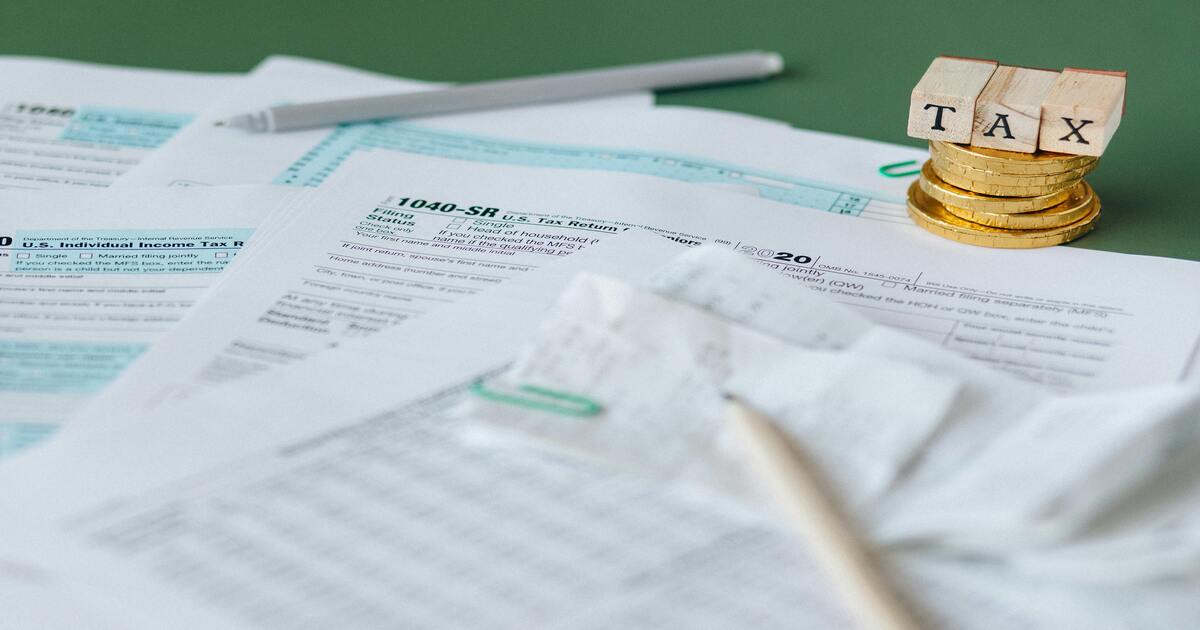Tax season for expats is at its peak — there’s not much time left to get your documents in order. If you don’t have them all sorted out by now, you’re probably in a rush.
But you know what they say — speed is the enemy of perfection. And when it comes to tax paperwork, it’s important to be as accurate as possible.
As an expat, you have the right to an automatic filing deadline extension of two months. This means you need to be ready by June 15. To be precise, June 17, 2024, as the 15th falls on a Saturday.
This article will help you navigate through the documentation you need to file your US taxes, covering everything from previous tax returns to 1099 forms to business balance sheets.
Here are some of the key documents you’ll need to file your taxes in the right way:
- Previous year’s tax return
- Foreign tax return
- Income documents
- US 1099 documents
- Foreign account info and max balances
- Foreign pension balance and contribution information
- Capital gains documents
- US travel dates
- US workdays
- Virtual currency transactions
- Additional documents based on your specific case
Previous year’s tax return
This document is a great starting point for tax preparation as it shows your most recent filing history. It will also allow you to ensure your filing strategy is consistent across tax years. It will also allow you to consider last year’s carryovers, like unused foreign tax credits, when preparing this year’s return.
Foreign tax return
This official document, obtained from your resident country’s tax authority, details the taxes paid to that government when you’re considered a tax resident in your host country.
The foreign tax return is crucial for claiming foreign tax credits, effectively reducing your US tax liability by offsetting the taxes you already paid abroad.
Gather any relevant schedules or attachments that accompany your foreign tax return. They might provide additional details needed to claim the credits.
Some taxpayers don’t have to file a tax return in their host country. In that case, other documentation, such as income documents, will be your best alternative.
Income documents
Income documents serve as proof of income sources during the tax year. This documentation includes any of the following:
Statement of wages or salary
If you’re an employee at a US company living abroad, you’ll receive a Form W-2 from your employer, which you can use to file. If not, you’ll need a foreign wage statement or foreign employer compensation statement to summarize your income. Expats who work for a foreign employer and receive pay in a foreign currency will have to convert it into US dollars in line with IRS guidelines before reporting it on Form 1040.
Self-employment income documents
Those freelancing for US businesses will use a Form 1099 issued to report their gross self-employment income. Form 1099-NEC reports non-employer compensation to individuals contracted by US companies.
Those who do freelance work for non-US companies will not receive a Form 1099 but will still need to report their earnings on Schedule C.
Investment income documents
Investment income may be generated from financial institutions within the US or abroad, but all income should be reported on the US tax return. Some of the documents you will use to report investment income generated at US banks include:
- 1099-INT: Reports interest income earned on US investments like bank accounts or bonds
- 1099-DIV: Reports dividend income earned on US stocks or mutual funds, is issued by the payer (a freelancing platform, bank, brokerage firm), and establishes your total taxable income for US tax purposes
- 1099-B: Reports capital gains and losses, or proceeds from broker and barter exchange transactions (selling stock, stock options, or bonds)
If you have foreign investment income an annual summary of that income may be sufficient to report it on your US tax return. Additionally, if you report the investment earnings on a foreign tax return, that can serve as proof of the income for US tax preparation purposes as well.
Pro tip:
Keep in mind that investment income may be taxed differently in your host country. For example, in Singapore, dividends paid to shareholders are generally tax exempt. Accordingly, the Singaporean tax return won’t be a useful document to accurately report dividends you earned in that country on your US tax return.
Other income documents
There are many other income types beyond wage or self-employment income, and each has its own variation of accompanying tax documentation.
Reminder:
Keep an eye out for other 1099 forms you might receive depending on your specific income sources (there are 22 types in total!)
Other types of income that you need to report on your US tax return include:
- Social security or pension income
- Rental income
- Gambling or lottery winnings
- Farming income
- Royalties
- Alimony
You can use bank statements to document these income sources, if necessary. In the case of rental and self-employment income, expats will benefit from having records of related expenses to reduce their taxable income.
Note that some countries have specific documentation you must file along with your US tax forms. Here are two examples:
- Superannuation statement(s) — for expats in Australia: This document details your contributions to Australia’s retirement savings plan. This information is used to determine if any part of your contributions are taxable as income or if they qualify for tax benefits based on the tax treaty between the US and Australia.
- Pillar 2 statement(s) — for expats in Switzerland: Specific to Swiss residents, this document shows contributions made to the mandatory Pillar 2 social security system. These contributions might be tax-deductible on your US tax return, potentially reducing your taxable income.
Pro tip:
Consult a tax advisor to understand the specific rules and regulations regarding the deductibility of Pillar 2 contributions for US tax purposes.
Profit/loss statement and balance sheet — for self-employed expats
If you run a business abroad, the profit/loss statement and balance sheet, also known as financial statements, are essential. They provide a comprehensive picture of your business income and expenses for the year.
This information may be used to prepare foreign information returns such as Form 5471 or Form 8865, or to calculate your taxable business income for US tax purposes. Make sure your statements are prepared according to US generally accepted accounting principles for smooth processing by the IRS.
Foreign account info and max balances
You need to report the highest balance reached in each account during the tax year, as this information is necessary under the Foreign Account Tax Compliance Act (FATCA).
FATCA helps the US government identify US citizens with substantial foreign assets with the intention of combating tax evasion. Unfortunately, these filing requirements impact US taxpayers with everyday banking needs abroad, as well. The threshold for reporting can vary, so consult a tax advisor if you’re unsure about your reporting obligations.
Gather information about your foreign financial accounts, including bank statements, investment account statements, or any documentation detailing account balances.
Expats with a total of over $10,000 in foreign accounts (including [online] bank and investment accounts), whether over $10,000 in just one account or between the combined balances of several, at any time during the year are required to report all of their foreign accounts by filing an FBAR (Foreign Bank Account Report) online to FinCEN.
If their foreign financial assets exceed $200,000 on the last day of the tax year, or over $300,000 at any point during, expats also must file Form 8938. This threshold doubles for jointly-filing, married couples to $400,000 on the last day of the year, or over $600,000 at any point during.
Capital gains documents
In addition to the reporting of purchases and sales of stocks and securities, as discussed earlier, real estate sales made during the year will also be reported in the US tax return. Records showing the date and value of the sale, the original purchase value, and the transaction date will be necessary to accurately calculate the capital gain or loss.
In the case of a property sale, expats also need proof of any improvements they made to the property between purchase and sale, showing the cost of these works.
US travel dates
Track the days you spent physically present in the US throughout the year. This is crucial for determining eligibility for tax benefits like the Foreign Earned Income Exclusion (FEIE).
The FEIE allows you to exclude a certain amount of foreign-earned income from US taxes if you meet specific criteria regarding foreign residency or days spent abroad. The IRS offers various methods for tracking your days in the US, including maintaining a detailed travel log or utilizing passport stamps.
Note:
A day in which you depart or arrive in the US is considered a full US day for the Physical Presence Test purposes.
US workdays
Records like pay stubs, employment contracts, or work calendars can help calculate the exact number of days you worked for the US employer. This information helps allocate your income as US or foreign-earned, which impacts the foreign-earned income exclusion and foreign tax credit calculations.
Virtual currency transactions
Did you trade cryptocurrency during the year? Records of your virtual currency transactions, including purchase dates, sale dates, amounts involved, and exchange rates, are necessary to report capital gains or losses on your US tax return.
Cryptocurrency transactions are treated similar to stock trades for US tax purposes.
Pro tip:
Using a cryptocurrency tax reporting app like Cointracker can help cryptocurrency investors and users track their cryptocurrency transactions, making reporting worlds easier when it comes to tax time.
Additional documents required for certain cases
You may also need to document some of the following, if they apply to your specific case:
- Proof of charitable donations may be necessary for expats taking them as a deduction (You need to show the date they were made, the value, and the charity they were made to)
- Proof of childcare costs, for expats claiming the Child and Dependent Care Credit
- Proof of utilities and rental expenses, for expats claiming the Foreign Housing Exclusion
- Proof of tuition paid for educational credits and deductions.
Remember:
Charitable deductions must be made to IRS 501c3 organizations, which generally are US based.
Should you file these on your own?
It’s surely possible to file the taxes on your own. But, why not rely on the guidance of a tax professional to tell you exactly what they need based on your situation? Save time and avoid the stress imposed by doing calculations, still risking you get something wrong.
US expats benefit from hiring a tax professional specialized in expat taxes, because they ensure you file your paperwork correctly and timely. Moreover, they help you take advantage of tax treaties and tax credits. This can relieve your tax obligations and ultimately save you money.
Get your documents in order with Bright!Tax
Bright!Tax will guide you through the whole tax filing process, including requesting only the documents necessary based on your personal situation. We’ve already helped thousands of expats just like you optimize their expat tax strategy!

 Connect on LinkedIn
Connect on LinkedIn







